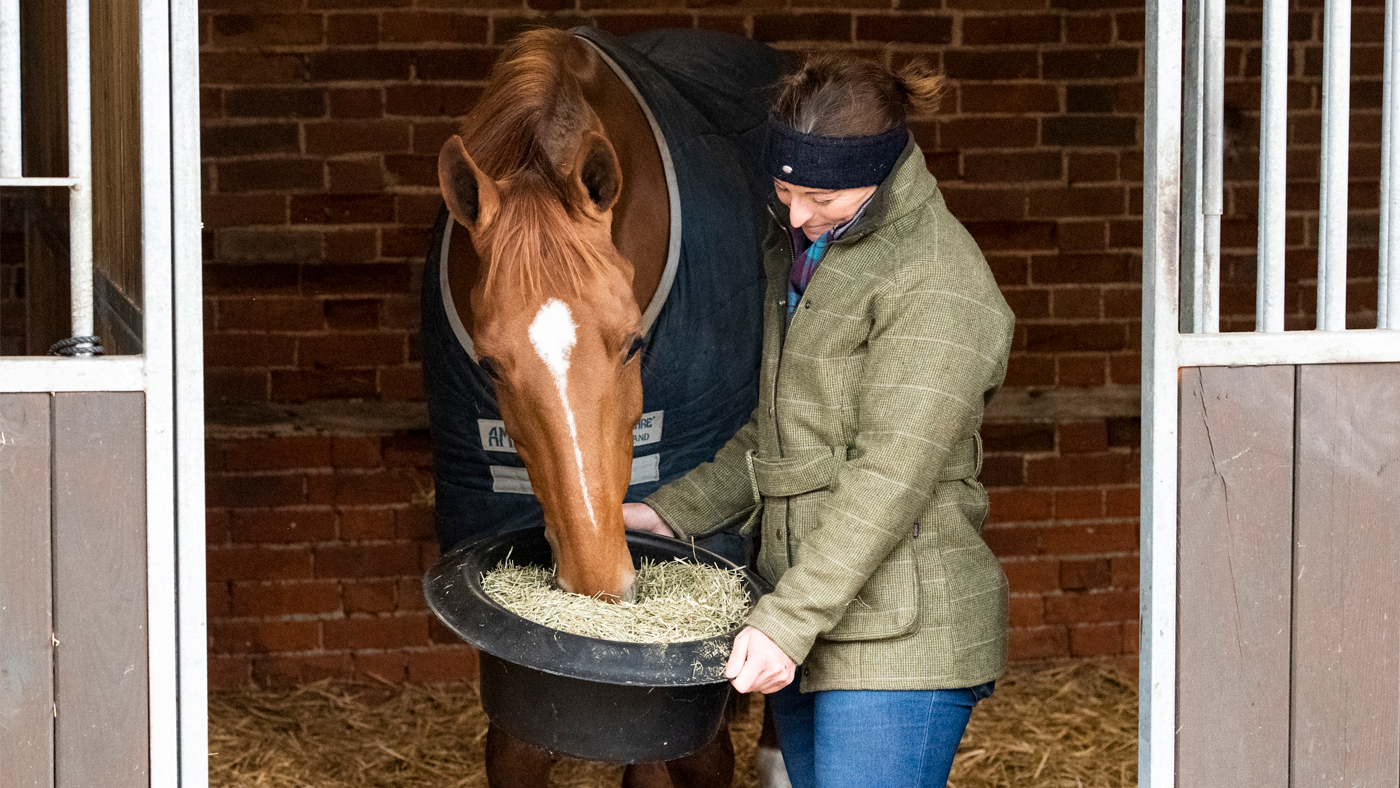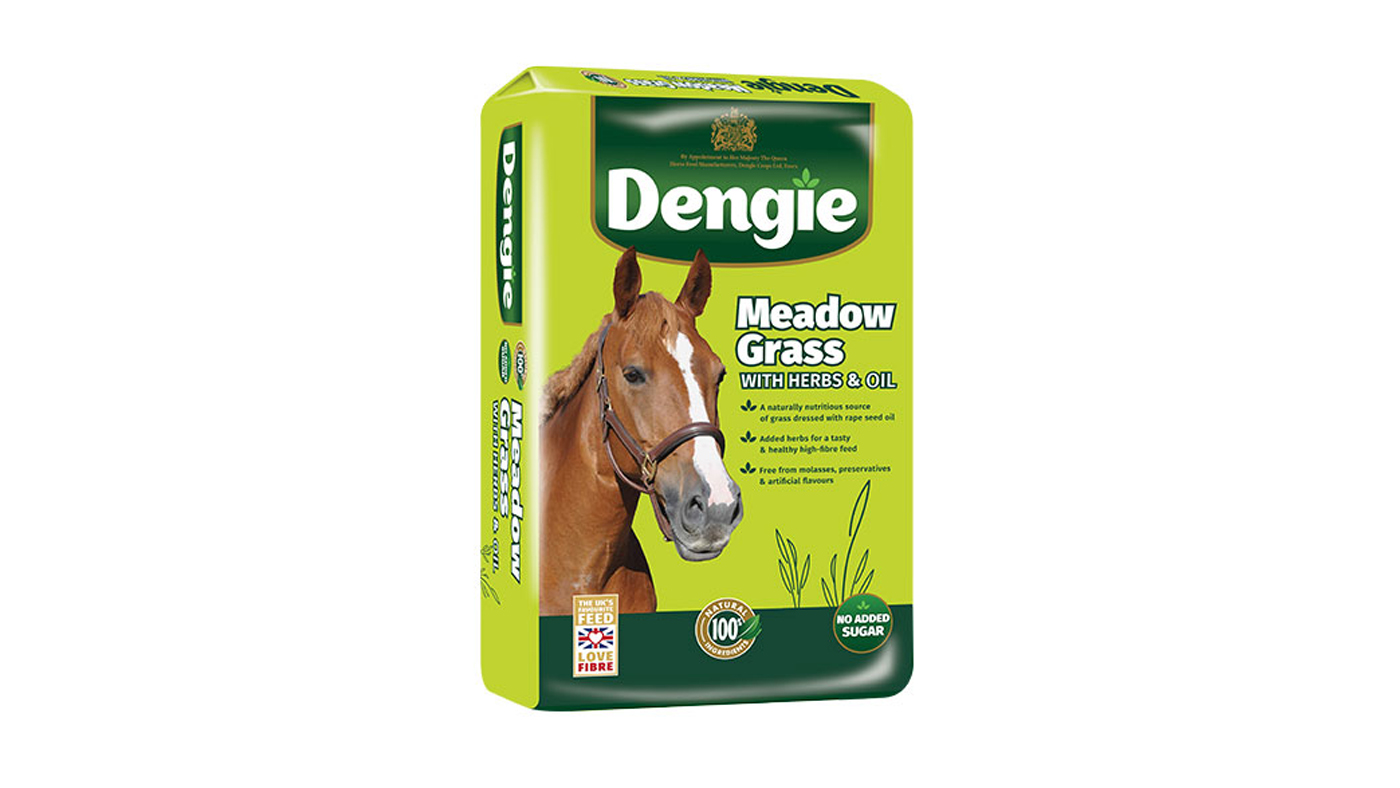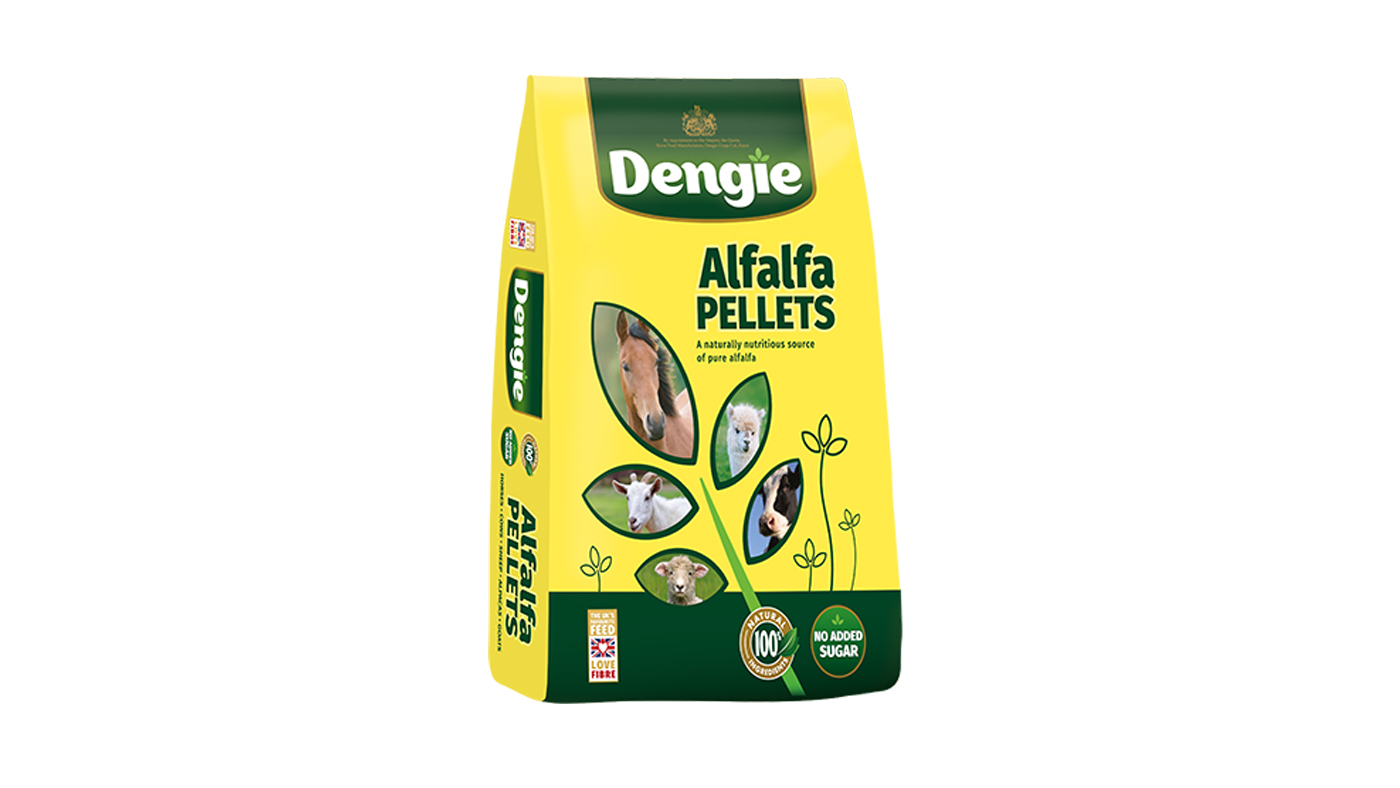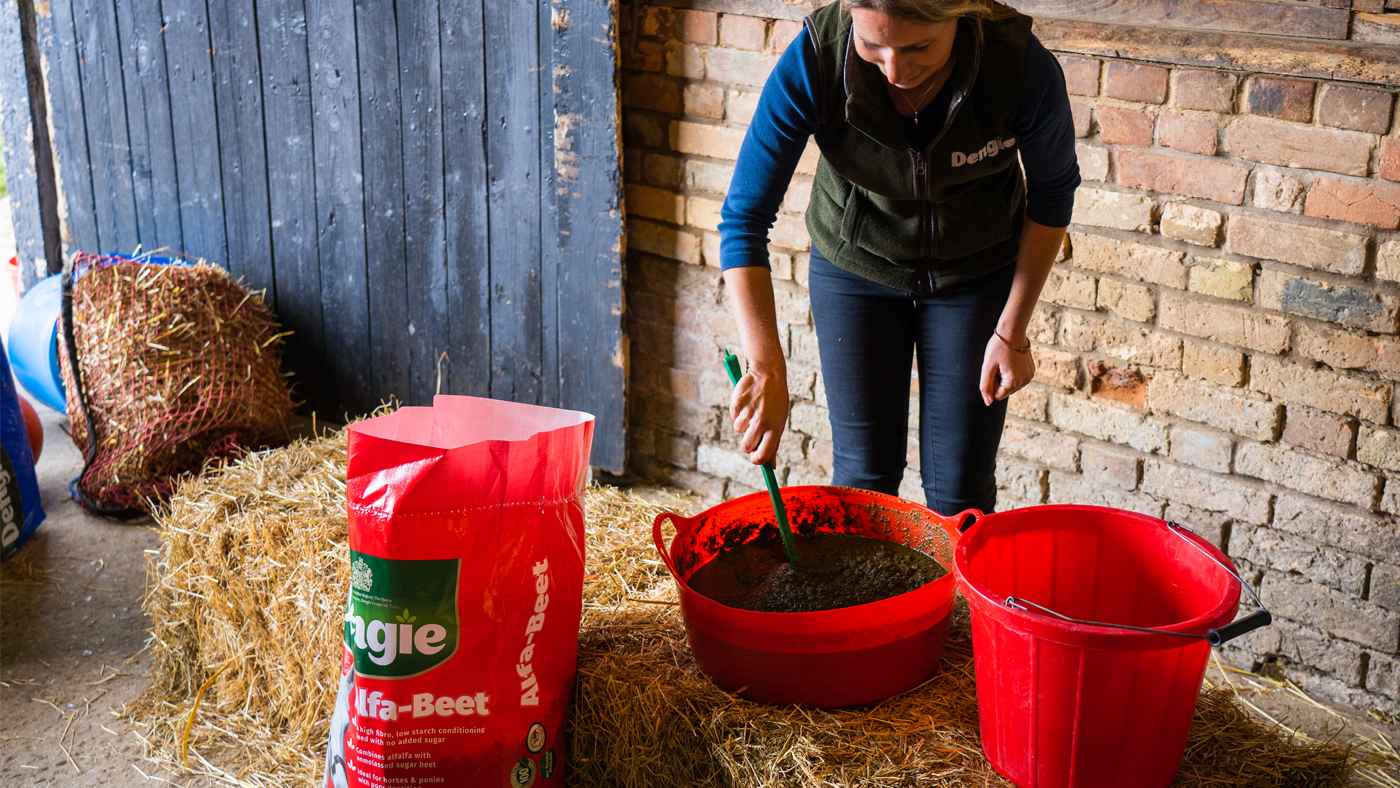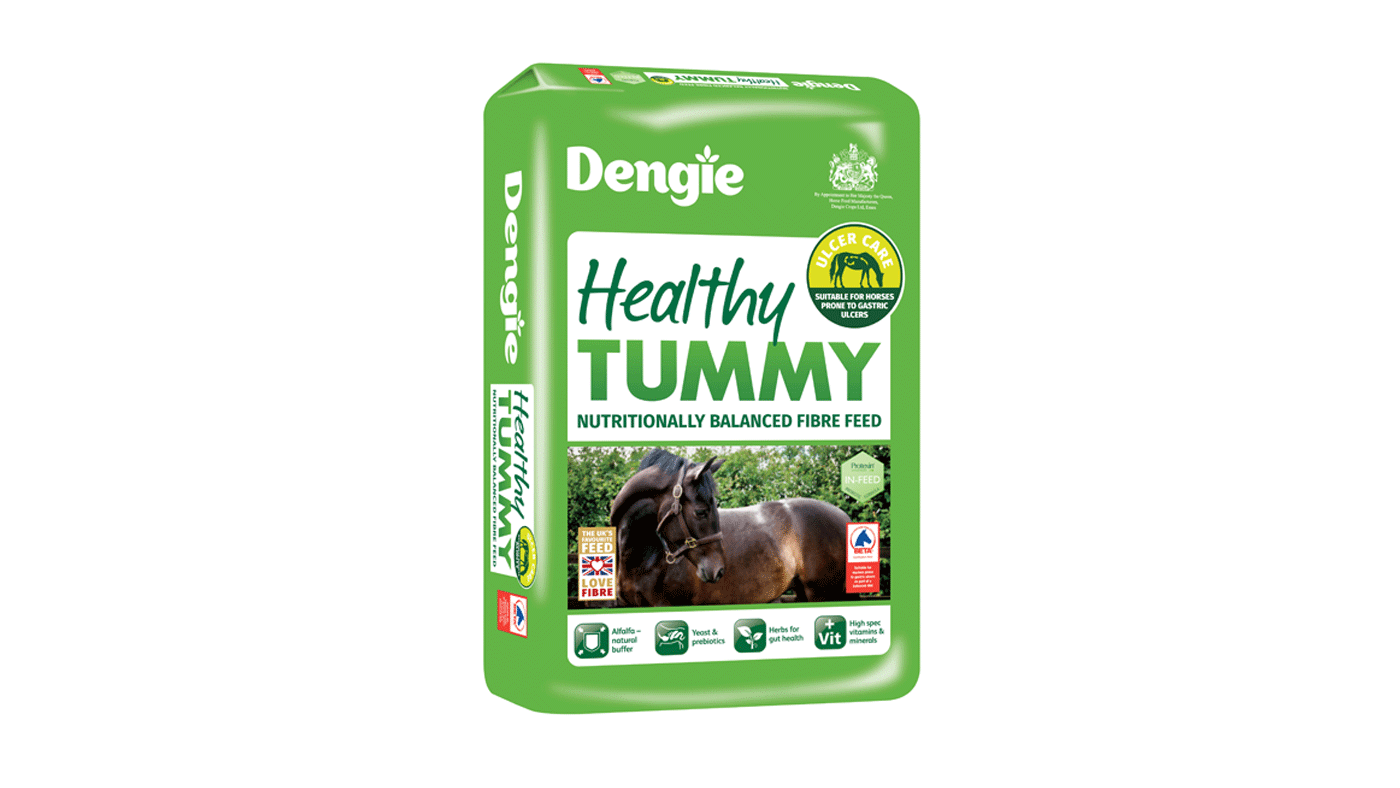Promotional Feature with Dengie
Does your horse lose weight at this time of year? Here are some top tips from Dengie for improving your horse’s condition safely this winter…
Feed the best forage you can
Forage makes up at least half of most horse’s rations and so, if it is of poor nutritional quality, it will have a significant impact on the horse’s condition. Forage quality is largely determined by how digestible it is – there are different types of fibre found in feeds ranging from the very digestible pectin to the less digestible cellulose. High levels of lignin, an indigestible substance that gives a plant structure, significantly reduces the digestibility of a forage. The older and taller a plant gets, the more lignin is present, which is why later cut hay will tend to be less conditioning than earlier cuts. Haylage or wrapped hay tends to be cut earlier than hay and so is often more digestible, which is why horses tend to do better on it.
If you only have poor quality forage available, top up with some chopped fibre feeds that contain dried grass that has been harvested when the grass is young, such as in Dengie Meadow Grass with Herbs & Oil. Feeding a couple of kgs per day as a top-up to the forage ration can make a big difference in the horse’s condition. For extra enrichment for stabled horses, why not add a chopped carrot or apple to the bucket of grass for the horse to forage around for?
Use feeds high in fibre and oil for condition without fizz
High-fibre feeds can be used in the bucket feed too and when combined with oil can provide just as much energy or calories as cereal-based feeds. For example Dengie Alfa-A Oil contains 12.5MJ/kg DE – DE is the level of digestible energy in a feed which can be measured in calories or joules. For horse feeds we use mega joules (MJ) – 1 MJ is a million joules. The level of 12.5MJ kg DE in Alfa-A Oil is the same as a conditioning mix, but with much lower levels of starch. A study Dengie carried out in conjunction with researcher Louise Bulmer, showed that horses fed fibre and oil were less reactive to novel stimuli and had lower resting heart rates than horses fed cereal-based feeds with the same energy value.
Chopped fibre feeds only weigh around 400-500grams per scoop and so can be less practical for some horses with limited appetites or those with poor dentition. Using pelleted fibres such as Dengie Alfalfa Pellets increases the density of the ration and can be dampened or soaked to help those who struggle to chew.
Maximise your horse’s ability to utilise their feed
The digestive system of any herbivore is undoubtedly healthier when fed a high-fibre diet. Although it may seem counter-intuitive, reducing the amount of cereal-based feeds may help your horse to gain weight – especially if you’re feeding more than a scoop of cereals in each feed. Feeding less cereals means the digestive system becomes less acidic and the digestion of other feeds becomes more efficient. Using highly digestible fibre sources such as sugar beet, which is included in Dengie Alfa-Beet, can make a significant contribution to the horse’s energy requirements. Rich in pectin, one of the most digestible forms of fibre, sugar beet has been shown to have a prebiotic-like effect in the gut. Including it in rations helps to improve the digestibility of other fibres the horse consumes.
Other benefits of fibre
The link between diet, the microbiome and overall health is increasingly being researched and understood. Fibre provides the specific type of energy that the cells of the gut use and, by feeding fibre, we’re helping our horses to maintain a healthy gut lining. This means it is better able to keep harmful bacteria and substances from passing through the gut into the body and also aids the immune system. When this process starts to weaken and harmful bacteria attack the gut, an inflammatory reaction occurs. The symptoms are things like loose droppings, diarrhoea and possibly free faecal water.
A high-fibre diet is the starting point in trying to maintain a healthy gut and avoiding these issues, but if your horse is prone to digestive upsets, it is worth trying Dengie Healthy Tummy which contains scFOS prebiotics and yeast. Both have been shown to aid the health of the digestive system as well as improving fibre digestion.
Contact information on 01621 841188, visit www.dengie.com where you can chat-live with a qualified nutritionist. Or alternatively complete our feed advice form.

